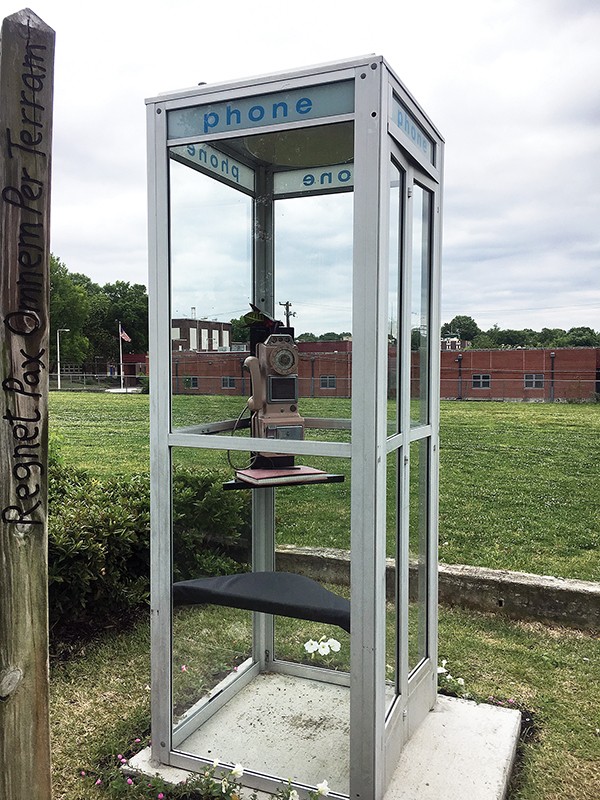Drug deaths are rising in Tennessee, and Memphians are raising awareness of the trend in any way they can, from benefit concerts and online support groups, to a newly installed phone booth for the bereaved.
In 2015, Tennessee had the most drug overdose deaths in the state’s history. That year, 1,451 died, including 188 in Shelby County, according to the Tennessee Department of Health (TDH).
“This is a disease every one of us is vulnerable to, not a moral failing,” commissioner of TDH John Dreyzehner said at the time. “Not one of these victims deserved this, and the tragedy of lives lost to overdoses becomes even more painful knowing these deaths can be prevented and are the horrible tip of the overdose iceberg.”
Opioids claimed close to 72 percent of those 2015 drug deaths. One of those was Emily Harvey’s ex-boyfriend.
In response to his death and the rising number of others like it, Harvey decided to install a phone booth, an art installation of sorts. Known as the Phone of the Spirit, the booth was dedicated Saturday in a community garden at St. John’s Methodist Church.
The phone is not connected, but the booth is meant to encourage grieving and healing for those who have lost friends and relatives to the growing drug epidemic, Harvey said.
 Maya Smith
Maya Smith
attention to overdoses.
“This project may not stop the disease, but it will spread awareness and grant others the hope of recovery,” Harvey said. “People can go to the phone booth any time to say the many things left unsaid, without judgment. The Phone of the Spirit is a visible channel where community members can express all feelings.”
Bethany Morse, a recovering addict, runs a Facebook page called Memphis’ War on Heroin. The group is a closed platform meant to promote education and awareness of the epidemic.
It provides a space where members of the community, whether recovering or active users of the drug, can share motivating topics, conversations, articles, and statistics in an effort to further educate, encourage, uplift, and break the stigma and cycle of heroin addiction.
Morse believes that the epidemic will not be erased until the proper resources and funding are available to addicts.
“We can and do recover, and not only do we recover, we go on to help others do the same,” Morse said. “We become productive, useful members of society. We can only do that if we are alive and given a chance at treatment.”
STOP Doing Heroin, a local activist group, has been working since December of last year, selling buttons and T-shirts, to raise money for addicts in the community who want to receive treatment but lack the means.
The group will hold the first in a series of benefit concerts Friday at the Hi-Tone Cafe. All the benefits from the show go to community members’ treatment, like drug counseling and education, clean needles, naloxone kits, and HIV testing.